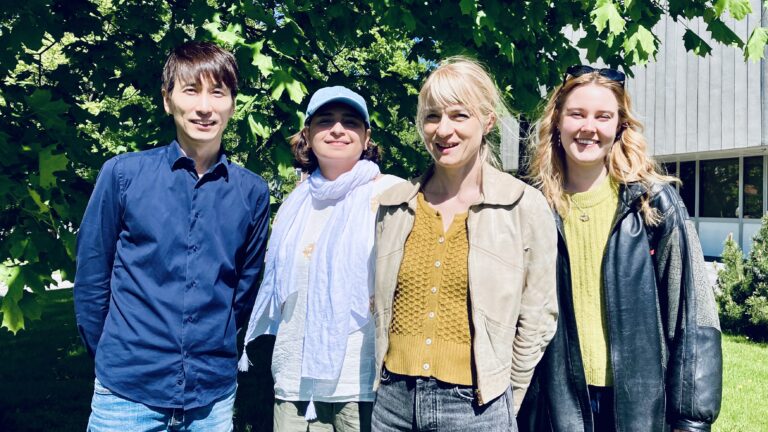
Panel Session: Whose Peace?
Exploring sites for practicing peace
Who is the bringer of peace? If peace can be built, then, by whom, and for whom? If we call for peace, who will give it or make it happen? By which means? That is, can force, war, and militarised means bring peace? Can peace also be built in our everyday lives? Can we all contribute to peace, here and now?
These questions and more will be brought to the fore when common assumptions about peace are placed under the scrutiny of peace researchers and the audience. In the session, we will take a look at how the meaning of peace is socially constructed and contested. Drawing on the case of Iranian women, Finnish conscientious objectors, and the different narratives of the war in Ukraine, we will discuss the different ways for imagining peace. We will do so by looking at the forms peace takes in the world and in ourselves, and the power, agency, and relations in making peace possible.
Speakers
Myungjin Moon
Myungjin (he/him) is a doctoral researcher at Tampere Peace Research Institute (TAPRI). With a background in the peace movement in South Korea, his current research interests centre on the workings of militarisation and resistance to it in the Finnish context.
Situated at the intersection of feminist peace research, critical studies on men and masculinities, and critical military studies, his dissertation focuses on Finnish conscientious objectors who refuse military service yet choose care work. It explores the potential, tensions, and implications of caring masculinities in destabilising hegemonic masculinities against the backdrop of militarisation in Finland.
Zahra Edalati
Zahra (she) is a doctoral researcher at Tampere University. She holds two master’s degrees: one in Peace and Conflict Research from Tampere university, and the other in Communication and Journalism from Iran. Her PhD research explores transnational networks of solidarity among Iranian women, both in Iran and the diaspora, with a focus on how the experiences of women from diverse backgrounds and politicisation processes shape their perceptions and their differentiated positions on gender issues in Iran.
Zahra’s research interests include feminist auto-ethnography, feminist peace, intersectionality, identity politics, and decolonising perspective. She has teaching experience in courses such as Feminist Peace, Memory Politics, and Decolonial Peace.
Juulia Niiniranta
Juulia is a doctoral researcher at Tampere Peace Research Institute TAPRI.
With a background in moral and social philosophy, Juulia is currently working with her doctoral project that deals with peace narratives by people living in war-affected circumstances. Her research also explores the potential of photography in peace research, using photography as a primary language with participants. Visual narratives convey alternative stories of war and peace, stories where hope, recovery and capability are present.
Outside academia, Juulia works at art departments in film productions, does illustrations and photography, and performs voluntary work in Youth Walk-in-therapy consultations.
Sina Jasmin Krämer
Sina (she/her) is a doctoral researcher at Tampere Peace Research Institute (TAPRI), focusing on the construction of emotions and memories of German National Socialism. Beyond this focus, she writes on the impact of gender norms on psychosocial peacebuilding, neuroscience and peacebuilding, trauma-informed peacebuilding, and critical perspectives on resilience in the European Nordics.
Sina holds a Master of Philosophy in International Peace Studies from Trinity College Dublin and has an academic background in psychology. Her interdisciplinary research focuses on feminist peace studies and psychology, examining the impact of trauma, memory, and emotions on post-conflict societies and peacebuilding efforts.